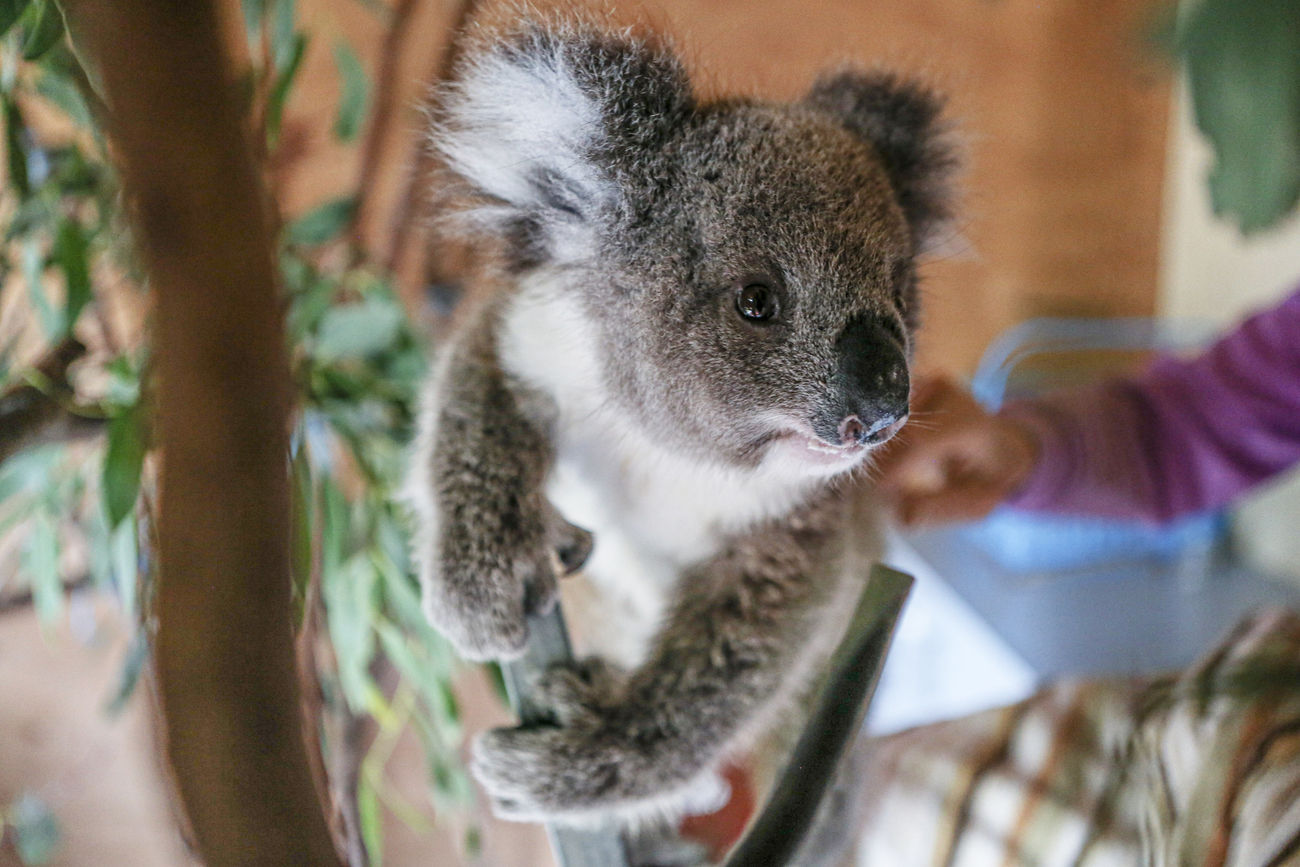Rescuing, rehabilitating, and advocating for Victoria’s koalas
Rescuing, rehabilitating, and advocating for Victoria’s koalasifaw supports wildlife rehabilitators and partners in Australia as they overcome COVID-19 challenges
ifaw supports wildlife rehabilitators and partners in Australia as they overcome COVID-19 challenges

COVID-19 has brought new challenges for wildlife rehabilitators across Australia. Several of our partners rely heavily on revenue from public tours to support their operations, making it particularly difficult when they had to close their doors for the safety of visitors, staff, and animals. Nevertheless, they remain dedicated to the animals in their care and continue to push forward.
Three such partners are Friends of the Koala in New South Wales, Mosswood Wildlife in Victoria, and Bonorong Wildlife Sanctuary in Tasmania.
At Friends of the Koalas, the volunteer team implemented increased health and hygiene protocols to ensure volunteers can provide fresh leaves to koalas without putting people or animals at risk. The 24-hour rescue service continues to operate and the IFAW-sponsored veterinarian team comprised of Dr. Jackie Reed and Marley Christian continues its lifesaving work.
In South West Victoria, IFAW supports our partners at Mosswood Wildlife as they care for more than thirty koalas and other rescued animals. The majority of these koalas are joeys who were rescued from the horrific Cape Bridgewater incident in February, during which hundreds of koalas were injured and killed during the bulldozing of a former blue gum plantation. Volunteers at Mosswood Wildlife are providing the young koalas with specialized rehabilitation and around the clock hand feedings.
In Tasmania, the number of COVID-19 cases is very low and there has been little to no community spread. Even so, our partners at Bonorong Wildlife Sanctuary took initial safety precautions to temporarily close their gates to the public. 24-hour wildlife rescue services continue to operate and the wildlife hospital remains open with support from IFAW’s sponsorship of a veterinarian team and emergency funding. Public visitation reopened in June and IFAW held a virtual tour in August to invite supporters from all over the world to virtually visit the sanctuary and wildlife hospital. In case you missed it, you can watch it here.
We want to give a big thank you to the many wildlife rehabilitators in Australia who remain dedicated to Australia’s animals in need. Thanks to them, and to your support, injured animals like koalas, Tasmanian devils, wallabies, and kangaroos continue to receive the care they need to one day return to the wild.
Related content
every problem has a solution, every solution needs support.
The problems we face are urgent, complicated, and resistant to change. Real solutions demand creativity, hard work, and involvement from people like you.